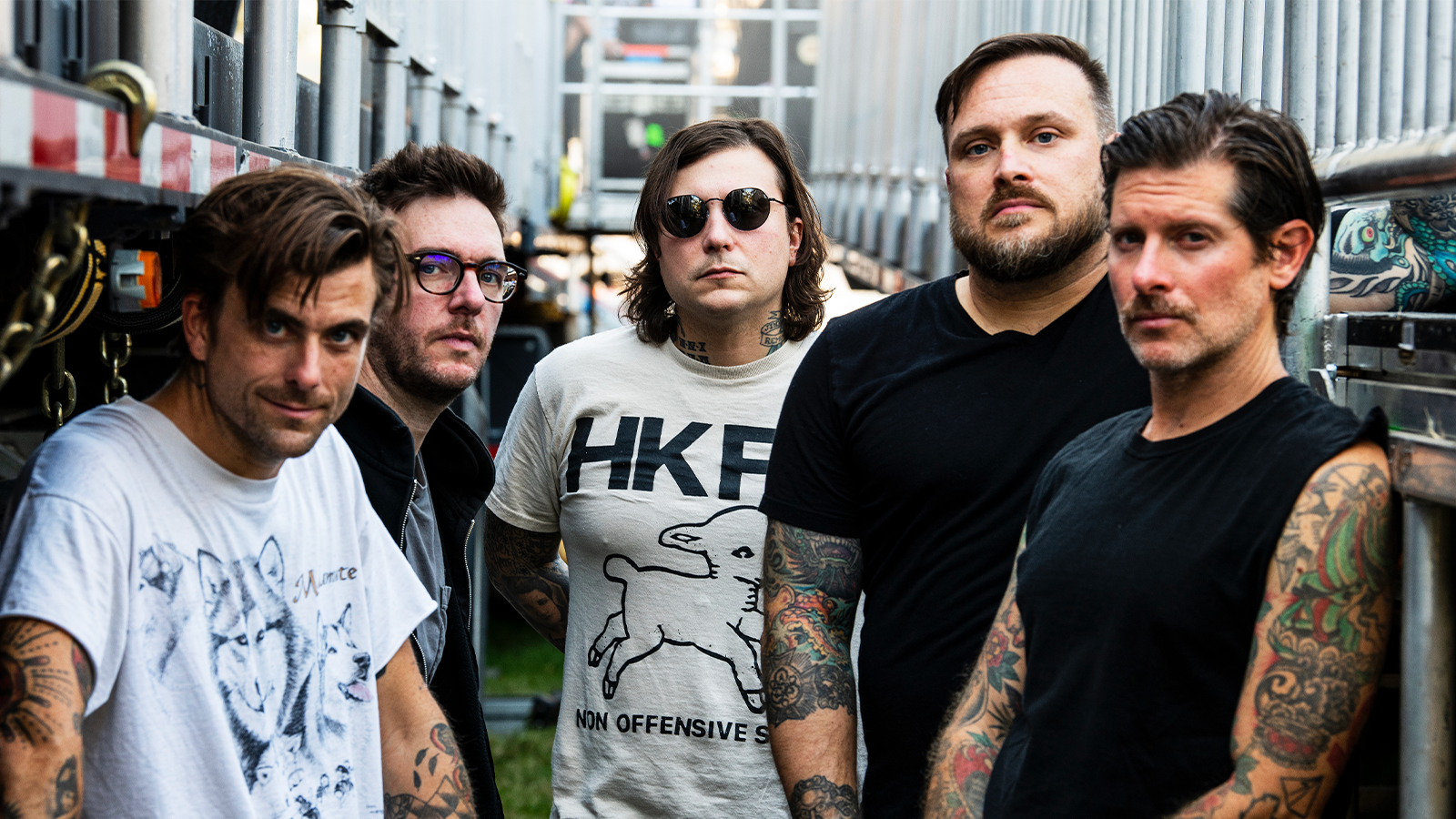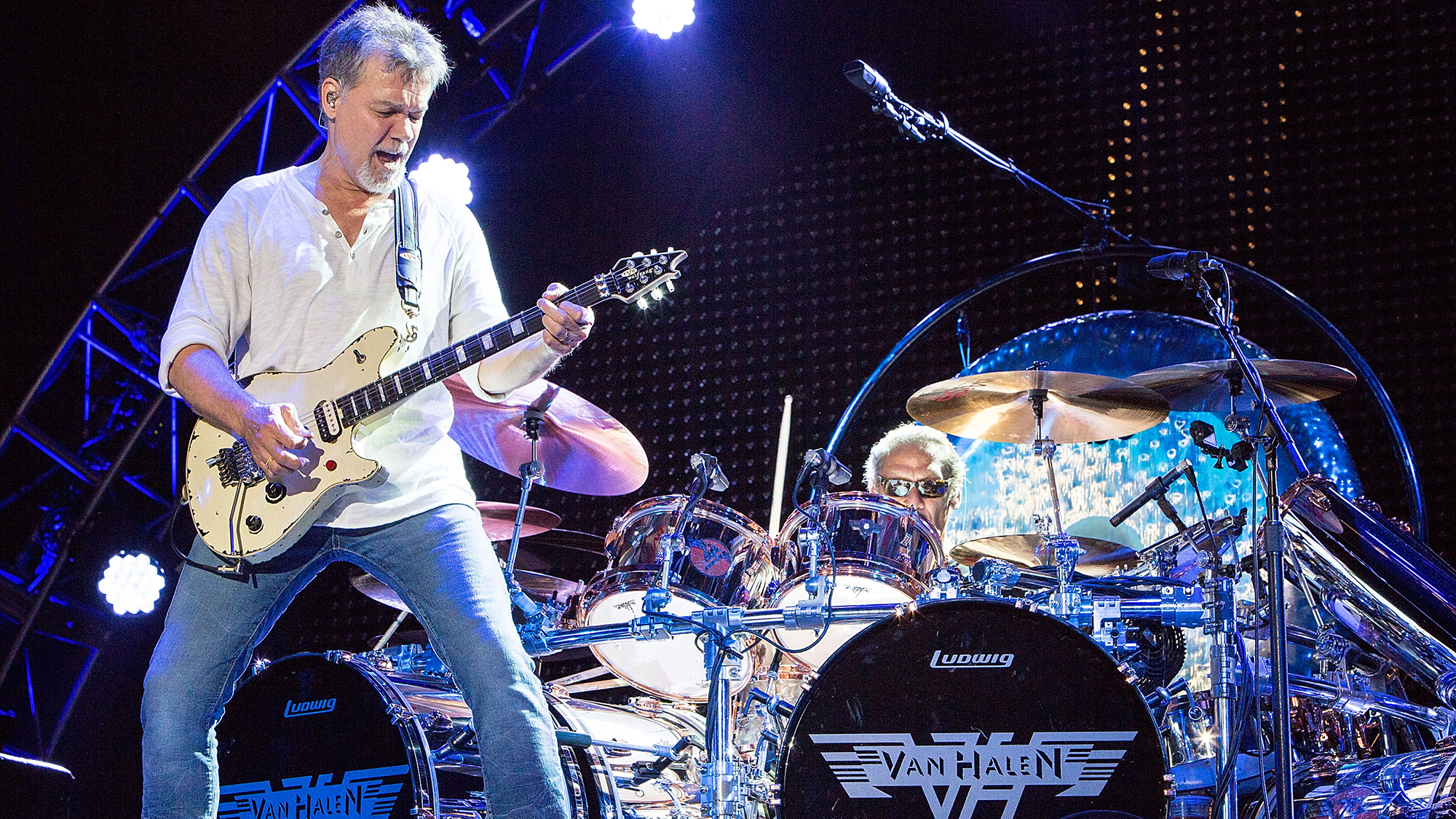L.S. Dunes: “We needed a place to put our hearts and souls, musically, during the pandemic”
L.S. Dunes might comprise members of the most iconic bands in post-hardcore, but you shouldn’t dare call them a “supergroup”. Australian Guitar finds out why

All the latest guitar news, interviews, lessons, reviews, deals and more, direct to your inbox!
You are now subscribed
Your newsletter sign-up was successful
On the surface, L.S. Dunes appears to be the post-hardcore supergroup of our wildest dreams: Anthony Green (of Circa Survive) on vocals, with Frank Iero (of My Chemical Romance) and Travis Stever (of Coheed And Cambria) on guitars, rounded out by Thursday’s Tim Payne on bass and Tucker Rule on drums. Their just-released debut album is titled Past Lives, and their first live set went down at the epochal Riot Fest – even the most outlandish of fan-fiction writers couldn’t make this up.
Catching up with Stever, though, we learned quickly that L.S. Dunes don’t really identify with the “supergroup” label – nor any of the stereotypes that come along with it. The band wasn’t formed to cash in on its members’ individual fame, and although there a glimmers of their signature styles strewn across Past Lives – My Chem’s melodic angst on ‘Like Forever’, Coheed’s mathy grit on ‘2022’, Thursday’s searing bite on ‘Permanent Rebellion’ – this truly is the work of an outfit galvanised by its own uniqueness.
With love for Past Lives dominating the online emo scene, Australian Guitar sat down with Stever to riff a little more on L.S. Dunes’ origin story.
So between the five of you, there’s been over 20 projects leading up to L.S. Dunes. When the band formed, did you all feel like you were able to adapt to this new setting easily because of how much you’d done it in the past?
Well, here’s the thing: people are inevitably going to call us a “supergroup” because we come from all these other bands, but we personally hate that term. We jumped into this [new project] because each individual in the band, we needed a place to put our hearts and souls, musically, during the pandemic. And we all knew that we were looking for that – we’d all been in touch, and we had an open dialogue with each other; Anthony didn’t come into the game until later on, but we’d known him for years.
Tucker and I had discussed doing something prior to the pandemic, and I’ve always wanted to work with him. I really have to give a shoutout to our manager, Paul Clegg, who connected all the dots for us – he knew there was a Coheed record that we’d been working on, but I love to be working on music constantly. And a major part of it was having the live setting taken away – not being able to do this thing that had always been such an important part of making music – so all I wanted to do was write.
I still needed a way to express myself. Not to be lame, but it all comes from the heart, you know? I really speak through my instrument, so especially with everything going on, I was looking for a chance to do that again. Because for me, that’s the most therapeutic thing – to be able to write and create with the guitar, and turn my emotions into melodies.
So what was your vision for L.S. Dunes?
We didn’t have one. There was no expectation, it wasn’t like, “Oh, well, we all play in these other bands that are pretty well-known, so when we get together and throw some paint at the wall, it’s gonna be killer.” It was like, “Let’s try something new.” We all respect each other as musicians, and I think sometimes, in our other bands, we tend to exist a bit more in the shadows. But I think all of us deserve to feel like we’ve expressed ourselves artistically – freely – so we wanted to give each other a safe place for that, where we could all just throw the paint at the wall and egg each other on to do whatever we felt like doing.
All the latest guitar news, interviews, lessons, reviews, deals and more, direct to your inbox!
You mentioned that Anthony didn’t come into the fold until later on – when did he jump onboard?
It was about a month after we started working on a bunch of different songs – maybe even a little longer. Tucker kind of tricked him into doing it. He told Anthony he was just working with some friends, nothing serious, so there was no preconceived notion that he’d have to impress anybody. So Tucker sent him a song – it was the first song we had, ‘Antibodies’ – and he was like, “Wow, that’s actually pretty good!” He sent it back to us with his vocals and we all just agreed, “There’s something here.”
We all felt so good about it. It became an addiction, sending ideas back and forth, and everybody adding to each other’s ideas, egging each other on to take chances… Anthony was like the final piece of the puzzle.
Did you see L.S. Dunes as an outlet for the ideas you couldn’t explore in your other bands?
Yeah, it’s got nothing to do with where anybody came from. And the cool thing is, it’s almost like a throwback to our earlier days, when we would all see see each other on tours and be like, “Yeah man, maybe someday we’ll work on some music together.” You know, everyone says that on tour, but when you really go through with it… And I’m not saying, like, “You can’t call us a supergroup!” It’s just that to me, this is a f***ing band.
I couldn’t be more proud to be a part of Coheed – that’s where I come from, you know? There’s no way I’d be here, talking to you about L.S. Dunes, if Coheed And Cambria didn’t exist. And I don’t want to sound cocky or anything, but I feel like I got to play on two of the best records that came out this year. But both of those records, and both of those bands, are equally important to me. L.S. Dunes is way beyond being a “side project”.
I know a lot of this record was written over the web – how many songs did you have in the bag before that first IRL session?
I’d say we had at least nine of the songs demoed out. It was a very different experience for me. And the way everybody was writing, some of the songs came about in totally new ways for us. Like ‘Gray Veins’ – which I think ties with ‘Blender’ as my favourite song on the record – that song started with Tim on the bass. Same with the the title track, ‘Past Lives’ – Tim sent over the bass part for the main verse, Tucker added a groove, I added some guitar to the verse… And they all really liked this weird kind of tone I got, so Will Yip carried all of that from the demo to the studio recording. And then Frank wrote this banging chorus that comes right out of that.
It was endless. I’d say we had at least 25 ideas that we were working on by the end of [the writing process], and we just picked the nine or ten that we thought were the most solid. The pandemic kind of got in the way of how we’d planned to do it in the studio. I didn’t get to go to Will’s actual studio – Frank did, and Tucker did all the drums there, but Tim and I ended up doing our parts remotely. But we’d done all the pre-production together, which was helpful. That gave us the time and space to think about what we really wanted to do, and the energy to be like, “Yo, we’ve got a spark here!”

Ellie Robinson is an Australian writer, editor and dog enthusiast with a keen ear for pop-rock and a keen tongue for actual Pop Rocks. Her bylines include music rag staples like NME, BLUNT, Mixdown and, of course, Australian Guitar (where she also serves as Editor-at-Large), but also less expected fare like TV Soap and Snowboarding Australia. Her go-to guitar is a Fender Player Tele, which, controversially, she only picked up after she'd joined the team at Australian Guitar. Before then, Ellie was a keyboardist – thankfully, the AG crew helped her see the light…
